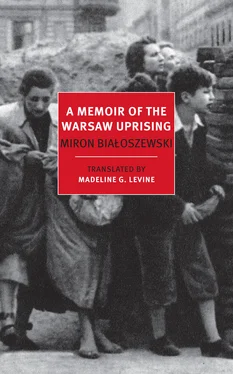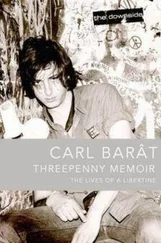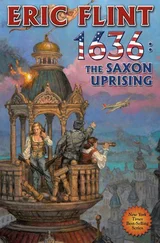Miron Bialoszewski - A Memoir of the Warsaw Uprising
Здесь есть возможность читать онлайн «Miron Bialoszewski - A Memoir of the Warsaw Uprising» весь текст электронной книги совершенно бесплатно (целиком полную версию без сокращений). В некоторых случаях можно слушать аудио, скачать через торрент в формате fb2 и присутствует краткое содержание. Год выпуска: 2015, Издательство: NYRB Classics, Жанр: Биографии и Мемуары, на английском языке. Описание произведения, (предисловие) а так же отзывы посетителей доступны на портале библиотеки ЛибКат.
- Название:A Memoir of the Warsaw Uprising
- Автор:
- Издательство:NYRB Classics
- Жанр:
- Год:2015
- ISBN:нет данных
- Рейтинг книги:4 / 5. Голосов: 1
-
Избранное:Добавить в избранное
- Отзывы:
-
Ваша оценка:
- 80
- 1
- 2
- 3
- 4
- 5
A Memoir of the Warsaw Uprising: краткое содержание, описание и аннотация
Предлагаем к чтению аннотацию, описание, краткое содержание или предисловие (зависит от того, что написал сам автор книги «A Memoir of the Warsaw Uprising»). Если вы не нашли необходимую информацию о книге — напишите в комментариях, мы постараемся отыскать её.
A Memoir of the Warsaw Uprising — читать онлайн бесплатно полную книгу (весь текст) целиком
Ниже представлен текст книги, разбитый по страницам. Система сохранения места последней прочитанной страницы, позволяет с удобством читать онлайн бесплатно книгу «A Memoir of the Warsaw Uprising», без необходимости каждый раз заново искать на чём Вы остановились. Поставьте закладку, и сможете в любой момент перейти на страницу, на которой закончили чтение.
Интервал:
Закладка:
Białoszewski does not, however, see himself as a witness-participant of a great event such as the historians have defined it but rather of the greater event of human suffering and brute survival against all odds. For the most part, the people portrayed in the memoir are little people, the objects, not the subjects, of history — heroic only insofar as survival against all odds is an act of heroism. The narrative point of view adopted in the memoir is designed to avoid the distortions that literary conventions might impose. The narrator of this memoir, Białoszewski’s “I,” is a naive observer-victim who, even at the time of remembering and writing, does not claim to comprehend the events he lived through. He does not actually reject such abstract concepts as “heroism,” “military strategy,” “international posture”; rather, they are simply outside his normal categories of thought. Białoszewski presents himself as quite ordinary, a nonhero who occasionally has a “heroic” impulse and even less frequently feels an impulse towards evil. An ordinary citizen, he had been trapped by history in a moment of great drama and terror.
Białoszewski eschews the historian’s attempt to create a pattern out of, or impose a meaning on, the random incidents that are for him the only reality of the uprising. His memoir boldly asserts the importance of the trivial in the record of a great historical occurrence. Through his eyes we see the uprising as a series of sometimes humorous but more often exceedingly painful vignettes as the besieged population of Warsaw attempts to cope with the basic human needs of finding shelter, food, and water in a city that is being consumed by explosions and flames before their very eyes. Białoszewski tells the story of the uprising as he saw it, literally from underground Warsaw — from the shelters and cellars and sewers in which he and his small circle of companions hid as the city collapsed and burned above their heads. His is a civilian victim’s view of a military and political debacle:
So, what was it all?
A pile of ruins? Of bombed-out cellars? And a pile of corpses?
I’m playing the sage unnecessarily. Long ago others created history out of this, made deductions from it and proclaimed them. And the thing is known. Yes, I’m speaking for myself — a layman. And for others. Also laymen. To the extent that we can speak because we were there. Laymen and non-laymen. All condemned together to a single history.
Białoszewski proceeds from the Stendhalian/Tolstoyan assumption that no participant can have an overview of a military operation and limits his reconstruction of the Warsaw Uprising to events he or a few trusted individuals actually observed. But the Tolstoyan rejection of the overview in favor of the distancing achieved through individual observation presumes the integrity of the individual observer. Białoszewski undermines even this premise by questioning the validity of his own perceptions and recollections. Memory is not a simple process, and he is careful to insist repeatedly on the shakiness of his recollections. Indeed, he is obsessed with the problems of remembering: the difficulty of fixing an event in time; the inevitable fusing of distinct memories into a single image; or, conversely, the fragmenting of a single incident into several disjointed images; the near impossibility of freeing one’s personal recollections from accepted interpretations and the numerous literary and cinematic depictions of a celebrated event. Time and again the narrative stops as Białoszewski suddenly hesitates over a particular detail.
The obvious effect of this concern with the accuracy of memory — the yielding to flashbacks, the overlaying of memories from different moments — is to increase the warping of the book’s chronological skeleton, which is also distorted by the related principle of free association. The reader is constantly being thrown off balance; the irritability Białoszewski’s method induces in the reader is a calculated device for conveying the terror that prevailed throughout the uprising.
Several Polish critics have commented on the prominence in the memoir of the verb latać and its derivative forms. Latać , literally “to fly,” but meaning in colloquial speech “to run,” “to rush,” or “to scurry,” appears with various directional prefixes and sometimes in nominal forms approximately 250 times in this nonliteral meaning alone. This astonishingly high frequency of occurrence is the verbal expression of the chaos in Warsaw, where people were in a constant state of running as fast as they could from barricade to barricade, from one seeming shelter to another. A translator who has to find English equivalents for it is also struck by the equally high frequency of the word chyba , an elastic term whose function is to cast doubt on the accuracy of the statement in which it occurs. (Unlike latać , every occurrence of which has been rendered here almost without exception as some form of the verb “to run,” chyba , because of its more fluid meaning, is translated variously as “perhaps,” “it seems,” “most likely,” “I think.”) Not counting its appearances in recorded dialogue, chyba , too, occurs in the memoir about 250 times. If we add in other words and phrases of hesitancy such as może (perhaps), nie jestem pewien (I’m not sure), nie wiem (I don’t know), nie pamiętam (I don’t remember), zdaje mi się (it seems to me), the number of times that terms expressing uncertainty appear soars to well over 400. Clearly, the question of how one remembers, the reliability of one’s own observations and memories, is a second and equally important subject of this memoir.
These two colloquial words, latać and chyba , stand as symbols of Białoszewski’s revisionism. Latanie , the racing about of civilians and partisans alike in response to the natural instinct to flee in the face of overwhelming danger, is a far cry from the pictures of dignified purposefulness and heroic martyrdom the more pious studies of the Warsaw Uprising have presented as a matter of course. Białoszewski’s pervasive skepticism about the previously assumed “truths” of the uprising and about the possibility of ever getting at any truths through a narrative memoir is similarly embodied in the word chyba . It is, paradoxically, this thoroughgoing rejection of historical and literary assumptions that transforms Białoszewski’s rough-hewn narrative into an astonishingly moving tribute to the city of Warsaw and the endurance of its civilian population.
This memoir, which insists on the importance of every remembered detail, however trivial, may at times appear tedious, as some contemporary critics complained. But the cumulative effect of Białoszewski’s preoccupation with the minutiae of life under extreme wartime conditions is extremely moving. The lingering descriptions of architectural monuments in the process of disintegration unite to form a prose poem in memory of a beloved city. A Memoir of the Warsaw Uprising is a work redeemed for literature by its very roughness.
This is not an inspirational book. It offers no comforting conclusions about individual heroism or historical necessity. There are no lessons to be drawn from the tragedy of Warsaw, no higher meaning to redeem the city’s suffering. We are left with the simple fact that human beings are infinitely vulnerable and are offered no suggestion that this can ever be otherwise.
As the translator of A Memoir of the Warsaw Uprising , I have been granted the extraordinary opportunity to revise my original, forty-year-old translation for publication by New York Review Books. In the process, I have discovered and corrected some egregious errors that I would like to think were the inevitable and forgivable mistakes of a novice translator, and I hope that in making numerous minor changes throughout the text I have not introduced a new set of errors. Most importantly, this revised translation of A Memoir of the Warsaw Uprising is based on the 2014 edition of Pamiętnik z powstania warszawskiego , edited for the multivolume collection of Białoszewski’s oeuvre by Dr. Adam Poprawa, who has produced for Polish readers a version of the memoir that restores passages that appear to have been omitted from the 1970 and later editions either because of rulings by the censors or by Białoszewski himself in anticipation of the censors’ objections. Some of the changes introduced by Białoszewski in print in later editions or orally in his readings were stylistic; some were corrections of the abbreviated names by which he referred to certain individuals; a few filled out some of his memories. But the most interesting thread connecting a number of newly introduced comments and asides is political and linked to the fraught topic of the position of Jews in Poland during and immediately after the Holocaust. One may imagine that this became of heightened significance for Białoszewski after the 1967–68 official exclusion of Jews from positions of cultural and political influence, resulting in an exodus of many thousands of the Jewish survivors of the Holocaust who had hoped to live out their lives in Poland. As Poprawa points out in his afterword to the 2014 edition, during the 1970s Białoszewski recorded on tape for Polish radio the entire text of the memoir. In his reading he made a significant change in the memoir’s concluding passage. A single inserted sentence quietly reminds the reader of Poland’s “Jewish question”: “A couple of months later I saw Stefa, who was preparing to go abroad.” Stefa, a Jewish woman and family friend who survived by passing herself off as Volksdeutscher, has returned to Warsaw but is preparing to leave Poland. Poprawa chose, on aesthetic grounds, to retain the closing passage as it appeared in the 1970 edition minus the “offending” sentence. But he admits that there is no way of knowing whether Białoszewski added the sentence in the 1970s or the censors removed it in 1970 as too clear a reminder of the 1968 purge of Jews. Because of its potential importance, I have chosen to include the variant ending in this introductory note, while respecting Poprawa’s decision in the translation, which follows the 2014 edition in every particular.
Читать дальшеИнтервал:
Закладка:
Похожие книги на «A Memoir of the Warsaw Uprising»
Представляем Вашему вниманию похожие книги на «A Memoir of the Warsaw Uprising» списком для выбора. Мы отобрали схожую по названию и смыслу литературу в надежде предоставить читателям больше вариантов отыскать новые, интересные, ещё непрочитанные произведения.
Обсуждение, отзывы о книге «A Memoir of the Warsaw Uprising» и просто собственные мнения читателей. Оставьте ваши комментарии, напишите, что Вы думаете о произведении, его смысле или главных героях. Укажите что конкретно понравилось, а что нет, и почему Вы так считаете.












